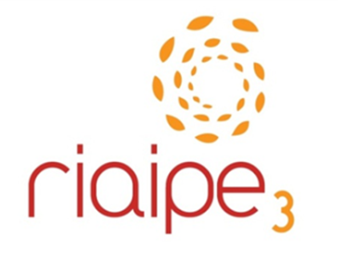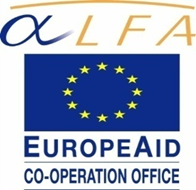Project Description
‘Glocal Languages’ and ‘Intercultural Responsibility’ in a postcolonial global academic world (GLOCADEMICS):
Power relations between languages/cultures within and between research groups
This project aims to research on the representation, positioning and workings of European ‘glocal’ languages (English, Portuguese and Spanish) and of indigenous languages as well as on the promotion of ‘intercultural responsibility’. This aim will be achieved both through the study of language and intercultural policies in the curricular management of a sample of Language/Culture Departments in Brazilian universities and of intercultural communication/interaction in a sample of research teams, both in the Social Sciences and in the Life Sciences, in the same universities. It aims to carry out document analysis and field research, through observation of meetings and focus group interviews, in Brazil and comparative research while back in Europe. The outcomes of the project will be analyzed and concluded in reference to the results of projects such as ERC-ALICE - on epistemological dialogue between Europe and the global South, and ALFA-RIAIPE3 – on the role of Latin American universities in promoting equity and social cohesion.
The research topic above, whose approach will be multi- and inter-disciplinary, falls into knowledge fields, most of which are themselves interdisciplinary by nature, namely Education (language and culture; intercultural citizenship; higher education policies); Sociolinguistics (language use); Communication (intercultural communication); Sociology (globalization, postcolonialism, inter-ethnic studies); Philosophy (epistemology).
Originality and innovative nature of the project
The originality and innovative nature of the project, in relation to the state-of-the-art of the field, as summarized above, will rely on the search for answers to new questions:
- Being global European languages those of colonization and hegemonic globalisation, how can they, at the same time, be appropriated and used as emancipatory tools? Can they provide common ground where different appropriations of the represented cultures can dialogue? And one into which the various home cultures and epistemologies can be translated? While, at the same time, make room for native languages to grow? How do they work in the formation of identities and in the fulfilment of citizenship rights and duties, in different spheres, local and global?
- Do the tenets normally included in the definitions of ‘Intercultural Competence(s)’ fully and adequately respond to researchers’ professional and personal demands? Do IC ‘best practices’ displayed in published material effectively support research group members in their communication/interaction? Can the notion of ‘Intercultural Responsibility’ raise them up to their challenges in international networking? Can it provide ground for concept and collaboration mode negotiation? Can it promote a scientific approach that takes into account an ‘ecology of knowledges’?
- How do Brazilian and European Modern Languages Departments organization and curricula compare? What lessons can be learnt from each other? What changes can be suggested? What collaborations can be stimulated?
- Which are the main possibilities and challenges in epistemological exchange within and among multilingual and multicultural research groups? Which are the main historical pressures to be overcome? What initiatives can higher institutions take in order to make research international networking more effective? In what directions should research in the field go?
Empirical study
Settings where the empirical study is taking place (years 1 and 2):
1. (USP) Universidade de São Paulo; 2. (UNINOVE) Universidade Nove de Julho (SP); 3. (UFBA) Universidade Federal da Bahia; 4. (UFPR) Universidade Federal do Paraná; 5. (UNILAB) Universidade da Integração Internacional da Lusofonia Afro-Brasileira, Ceará and Bahia.
Research methodologies to be used in this study:
- Document analysis;
- Comparative document and curriculum analysis;
- Overt direct observation;
- Individual semi-structured interviews;
- Focus Group interviews;
- Building grounded theory ;
- Bibliographical review ;
- Contextualizing findings and theory building with ERC ALICE (http://alice.ces.uc.pt) and ALFA RIAIPE3 (http://ces.uc.pt/pt/investigacao/projetos-de-investigacao/projetos-financiados/riaipe-3) Projects’ final outputs.
The research study will start with the analysis of official documents meant to regulate linguistic policies in higher education in Brazil, as well as of curricula at work in the targeted Modern Languages departments, in order to map the general linguistic policies and practices there and to analyse the offer and curricula of language/culture/intercultural courses with regard to English, Spanish and Portuguese. It will also find out about the role and representation of native languages/cultures, or its absence. Finally, it will examine how research team members negotiate the meaning of working concepts in written production (both for reports and publications). The study will then proceed with a comparative analysis of findings in the different institutional contexts as well as between general official documents regulating language education and language use in Brazil, Europe and the United States. In the meantime, contacts with targeted research groups will be established, as a preparation for the next step. The second phase will consist of fieldwork with two research groups in each university, one from the Social Sciences and one from the Life Sciences. Data gathering will be carried out through direct observation of one meeting for each group, individual interviews with a few members of each group and a focus group interview in each institution with a mixed composition of a limited number of members of both groups. Data collected will then be analysed. The third phase, at the return hosting institutions, will be dedicated to the completion of data analysis and theory building.
Data analysis
The universities in Latin America have followed the European models, on the whole, both epistemologically and in their organization. However, in the Social Sciences, not only in Europe, with regard to Latin American studies, but also in Latin America, there has been a move towards an epistemological turn, through the incorporation of a perspective from the south, of a new approach to the academic canon as well as of the introduction of local languages and cultures in the curricula, besides a new understanding of diversity with regard to European global languages. This is also evident in the focus of research projects such as ALICE (ERC) and RIAIPE3 (ALFA), whose findings GLOCADEMICS is going to have in mind and to which it will relate, precisely because they provide a novel approach to north-south relationships, in that they focus on the process itself, in dialogue and collaboration, on equal terms, in reciprocal enrichment of both parts, since they boldly and insightfully address the impact of historical developments on northern epistemological supremacy and cognitive injustice in the global south and the need for keeping a reciprocally advantageous balance between different world visions.

ALICE (2011-2016) is a research project aiming at knowing with the diversity of the knowledges of the world.
“The understanding of the world by far exceeds the European understanding of the world" (Boaventura de Sousa Santos)
http://alice.ces.uc.pt/en/?lang=en


Programa Marco Interuniversitário para a Equidade e a Coesão Social
nas Instituições de Ensino Superior (2010-2013)
The project’s aim is to add substantively to the improvement of equity and social relevance of Higher Education Institutions in Latin America.
Contribution to European excellence and European competitiveness through valuable transfer of knowledge during the return phase
This project will increase the attractiveness of the European Research Area for researchers since it is directly and specifically dedicated to them. The study will stimulate the participant researchers to undertake a meta-analysis on the linguistic and (inter)cultural aspects of their own communication and interaction with their peers overseas, on their own conceptual frameworks and on epistemological diversity and dialogue. The study outputs will also provide European researchers, as well as Latin American ones, with information and models for their professional development and stimulate them to undergo the same reflexive process. In my view, European competitiveness could only benefit widely from the outputs of this project and their cascade effects via publications, workshops, seminars and submissions of follow-up projects aiming to include and train young researchers in this aspect of their performance. These follow-up activities will produce long-term synergies and structuring effects, at least, in the participant institutions and in the others with which formal collaborations of any kind will be settled and certainly in those whose researchers are given access to the GLOCADEMICS’ outputs and take advantage of them.
Finally, this should be a strong matter of interest for the upcoming EU Framework Programme for Research and Innovation - Horizon 2020, which is “aimed at securing Europe's global competitiveness” and at ensuring “a strategic and coherent approach to international cooperation”.
WORK PLAN
| General objectives | Specific objectives | Chronology | Milestones |
| to map the general politics of ethnicity, language and culture in the context of some Latin American Higher Education institutions as compared to those in Europe; | to analyse the offer and curricula of language/culture/intercultural courses in Modern Language Departments, with regard to English, Spanish and Portuguese, in five targeted universities; |
Months 1-3 (USP / UNINOVE) Months 4-5 (UFPR) Months 6-8 (UFBA) Months 9-10 (UNILAB) |
- PROJECT/FELLOW WEBSITE
- report - report - PROJECT NEWS OUTLETTER |
| to find out about language representation and policies in the Brazilian Academy; | to identify the role and representation of native languages/cultures in the targeted departments and research teams; |
Months 1-3 (USP / UNINOVE) Months 4-5 (UFPR) Months 6-8 (UFBA) Months 9-10 (UNILAB) |
|
| to organize research teams’ observations and interviews | Months 10-12 | - report | |
| to examine the plurilingual and intercultural dynamics of multicultural group work in scientific ‘communities of practice’, with a focus on the use of English, Spanish and Portuguese, both in the social sciences and life sciences; |
Months 13-16 / 22-24 (USP / UNINOVE) Months 17-18 (UFPR) Months 19-20 (UFBA) Months 21-22 (UNILAB) |
- PROJECT NEWSLETTER | |
| to analyse how the three European languages most widely spoken in the world (English, Portuguese and Spanish) relate to each other in the Brazilian academy (Social Sciences and Life Sciences); | to critically analyse cross-cultural misunderstandings preventing successful task fulfilment in the selected research teams; |
- report - outgoing institutions: * 2 workshops * Newspaper articles - international: * 2 scientific articles (English and Port.) |
|
| to analyse potential strengths which can improve their intercultural communication and interaction; | |||
| to critically examine the power relations between the above mentioned languages and, if any, the native/indigenous languages with institutional representation, both in the curriculum and in research; | to examine how the above team members negotiate the meaning of working concepts both in oral discussions and in written production (both for reports and publications); | ||
| to find out how they negotiate the use of one common language and about the role of other languages; |
Months 13-16 / 22-24 (USP) |
- PROJECT NEWSLETTER |

